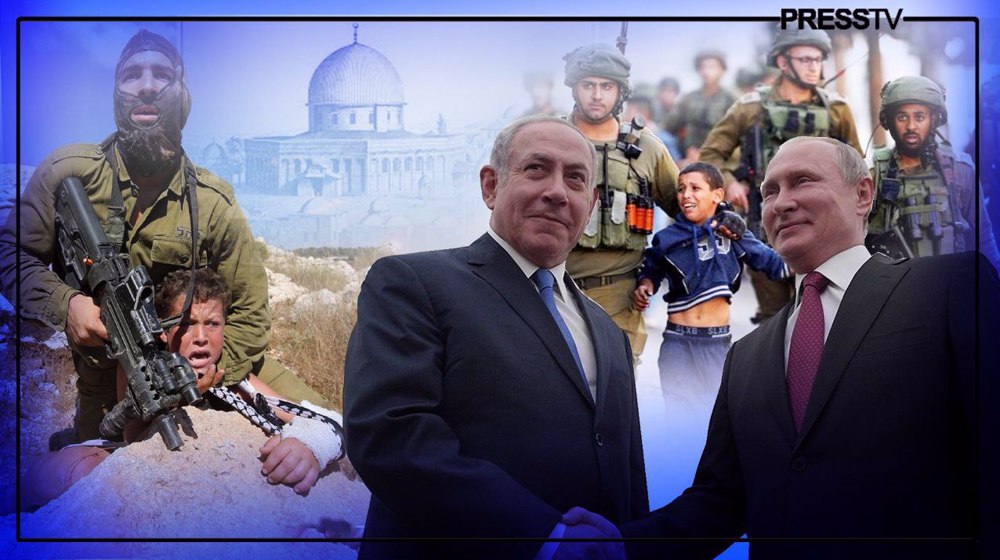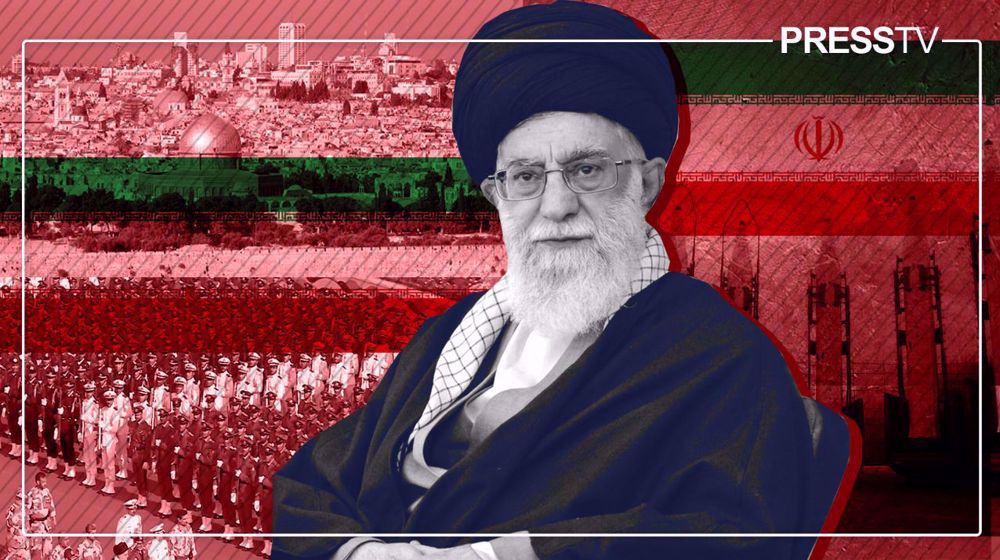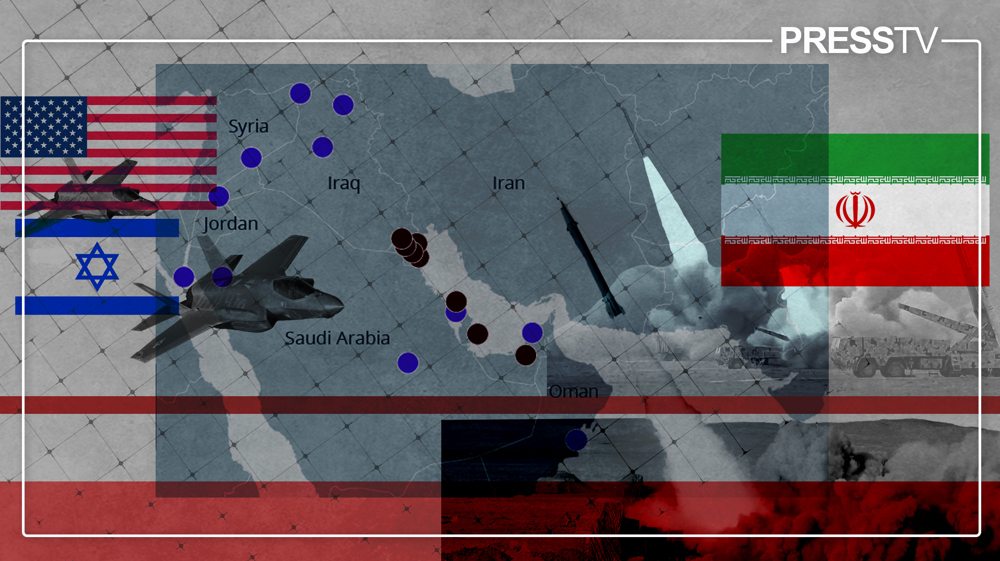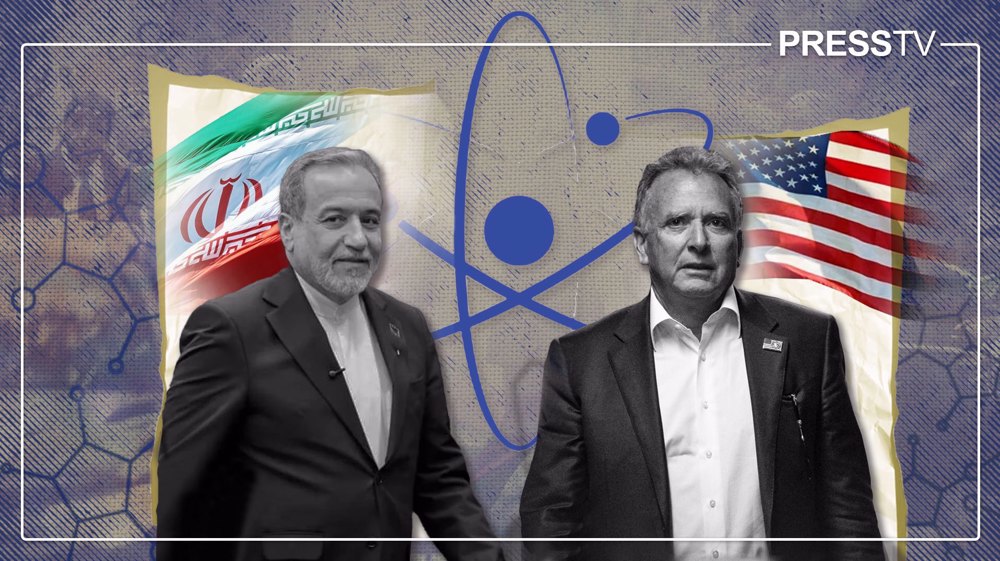Russia opening embassy office in al-Quds smacks of political expediency
By Syed Zafar Mehdi
In February 2019, Russia’s ambassador to Tel Aviv Anatoly Viktorov declared that moving the Russian embassy from Tel Aviv to occupied Jerusalem al-Quds was “off the agenda” while reaffirming his country’s commitment to international legal frameworks related to the occupied territories.
Pertinently, Russia was one of the countries that strongly rebuked the United States over former President Donald Trump's foolhardy decision to relocate the US embassy from Tel Aviv to Jerusalem al-Quds in May 2018.
"One cannot in such a way, unilaterally, revise the agreements, fixed in decisions [made by] the international community," Russian foreign minister Sergey Lavrov said at the time, disapproving what Trump called “a long-overdue step”.
In October last year, during talks in Kazakhstan’s capital Astana, Russian President Vladimir Putin told Palestinian President Mahmoud Abbas that Moscow has “a principled stance based on the fundamental resolutions of the United Nations and it remains unchanged”.
These statements were to a large extent consistent with Russia’s traditional stance on the Palestinian issue. Be it Russia voting to give Palestine more rights at the UN in 1998 despite fierce opposition from the US, Yasir Arafat’s frequent trips to Moscow until his death in 2004, his successor Mahmoud Abbas's strong ties with the Russian leadership or Moscow's close contacts with Hamas leadership.
On Friday, in a shocking development, Russia’s embassy in Tel Aviv announced it will be opening offices in the occupied al-Quds to serve its consular section as part of a deal with the Israeli regime.
The Russian embassy said in a statement that a deal over a plot of land in the occupied al-Quds, which Moscow bought in 1885 and was mired in a long-running dispute, was signed with the city municipality on May 18 and will be used to construct buildings to be used by the consular section of the embassy.
Viktorov, who in 2019 ruled out any such move that would violate the UN law and constitute a betrayal of the Palestinian cause, was quoted as saying on Friday that the buildings will come up within five to ten years, adding that the deal “takes into account the interests” of both sides.
Israeli regime foreign minister Eli Cohen, understandably, welcomed the announcement. His office said it was in line with the regime’s efforts to have more foreign diplomatic missions in the occupied Jerusalem al-Quds.
The apartheid regime has in recent years gone to great lengths to woo many countries to open or shift their diplomatic missions to the occupied Jerusalem al-Quds in order to normalize the occupation and hide its illegitimate character. Only a few have fallen into the vicious trap.
Russia’s decision to have an embassy office in the occupied Jerusalem al-Quds has sparked a social media storm, with people describing it as a betrayal to the people of Palestine considering the traditional pro-Palestine stance of Moscow.
It’s different from the US decision to relocate its embassy from Tel Aviv to the occupied al-Quds five years ago. Unlike the US, Russian foreign policy is not dictated by pro-Israel lobby groups. That's what makes it disappointing.
It is worth noting that Jerusalem al-Quds, which is home to Al-Aqsa Mosque, is at the heart of the long-running dispute between Palestine and the occupying, illegitimate entity. Al-Quds was first occupied during the 1967 war and annexed in 1980, but the move was never recognized by the international community.
Over the years, hundreds of illegal settlements have come up there, which are deemed illegal under international law and unequivocally denounced by multiple UN Security Council resolutions.
Russian officials had on numerous occasions in the past condemned both the Israeli occupation and illegal settlement activities in the occupied Palestinian territories.
In November 2019, for example, Russia’s foreign ministry said the US decision to back Israel’s right to build illegal settlements in the occupied Palestinian territories undermines the legal basis for a settlement of the dispute.
In October 2021, the ministry said the burgeoning Israeli settlement activities in the occupied territories of the West Bank and East Jerusalem al-Quds are illegal and undermine efforts for peace-building.
After the US embassy was relocated from Tel Aviv in 2018, Putin said such steps “can cancel out prospects for a Middle East peace process”.
On Friday, the Russian embassy statement in a classic volte-face said it “goes in line with our country’s unchanging course towards a fair Middle East settlement”.
“We believe that this step fully serves the interests of further strengthening friendly multifaceted relations between Russia and Israel, as well as goes in line with our country’s unchanging course towards a fair Middle East settlement,” read the statement.
On one hand, it talked about the “strengthening of friendly multifaceted relations” between Moscow and Tel Aviv, and on the other hand, it harped about the “fair Middle East settlement”. It cannot work both ways.
The decision to open an embassy office in the occupied al-Quds not only whitewashes all those previous statements made by Russian officials but also smacks of blatant political opportunism.
While most foreign embassies are located in Tel Aviv, four countries have so far moved their embassies to the occupied al-Quds, including the US, Guatemala, Kosovo and Honduras. Russia also has a functional embassy in Tel Aviv.
Russia agreed to open a branch of its embassy in occupied Jerusalem al-Quds in exchange for the Israeli regime recognizing Moscow’s claim on the disputed plot.
For Russia, it means a long-running battle over the possession of the plot of land is over. For the regime in Tel Aviv, it means another country now has a diplomatic office in the occupied al-Quds. But it is not a win-win proposition.
According to a report in Palestine Chronicle, the piece of land where Russia plans to construct its diplomatic offices is located on the corner of King George and Ma’alot streets in downtown Jerusalem al-Quds, which will include a residence for Russian diplomats as well as a conference hall.
The report cited Ramzy Baroud, a long-time Palestine watcher, as saying that it was not clear why Moscow chose to make such a move “at a time when Moscow has been drawing closer and closer to the Arab position on Palestine”, adding that a “political barter has been achieved between Moscow and Tel Aviv, sadly, at the expense of the Palestinians.”
“Considering the growing affinity towards Russia in Palestine and the Arab world, and China’s stronger position in solidarity with Palestinians, the Russian move, if not canceled, could turn Russia’s ‘political achievement’ into a major liability among Palestinians and throughout the Middle East,” he said.
The decision may also likely pave the way for the continuation of the operations of the Russian branch of the Jewish Agency, which Russia’s Justice Ministry has threatened to dissolve over breach of privacy laws. The agency is known for murky dealings in encouraging extremist Jews to migrate to occupied territories.
In both cases, if Russia actually goes ahead, it will risk losing all the goodwill it has in the Muslim world. That’s the last thing Putin and his aides want at this time.
(The views expressed in this article do not necessarily reflect those of Press TV.)
Iran condemns IAEA inaction as US-Israeli aggression targets nuclear facilities
Iran FM says to issue protest to Kuwait over US aircraft downing
IRIB chief says Tehran compound hit in Israeli-US aggression, broadcasts continue
US-allied fuel tanker attacked by Iran still burning in Strait of Hormuz: IRGC
Attacks on hospitals, schools ‘strike at life itself’: Pezeshkian
Iran’s attacks on US bases ‘legitimate’ response to source of aggression: Araghchi
IRGC targets US intelligence centers, military depots in 11th wave of attacks
US-Israeli attacks damage 5 hospitals, medical centers in Iran: MP










 This makes it easy to access the Press TV website
This makes it easy to access the Press TV website